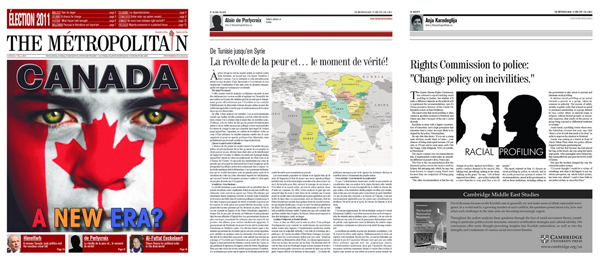Election analysis: Bain de sièges
Par Pierre K. Malouf le 10 juin 2011
 Le Québec avait mal au Bloc, les Québécois ont choisi comme traitement de choc un bain de sièges NPD! Que les motifs de tout(e) un(e) chacun(e) de voter pour un candidat du NPD aient été justifiés ou farfelus (et certains étaient sans doute excellents aux yeux de ceux qui ont fait ce choix), le résultat est le même: nous voilà plus que jamais éloignés du pouvoir. Et représentés à Ottawa par des députés dont la majorité des électeurs ne partagent pas les convictions et ne connaissent pas le programme.
Le Québec avait mal au Bloc, les Québécois ont choisi comme traitement de choc un bain de sièges NPD! Que les motifs de tout(e) un(e) chacun(e) de voter pour un candidat du NPD aient été justifiés ou farfelus (et certains étaient sans doute excellents aux yeux de ceux qui ont fait ce choix), le résultat est le même: nous voilà plus que jamais éloignés du pouvoir. Et représentés à Ottawa par des députés dont la majorité des électeurs ne partagent pas les convictions et ne connaissent pas le programme.
Election analysis: Tories and NDP must deal with new pan-Canadian realities
Par Anja Karadeglija le 10 juin 2011
When Stephen Harper first appeared as a prime ministerial candidate, his opponents charged that he harbored a secret agenda, and the strategy helped Paul Martin’s Liberalsdefeat the fledgling Conservatives in the 2004 election. Seven years later – five of them with Harper as prime minister – Canadians decided they liked Harper and his party enough to give him a majority, but the accusationsof a hidden agenda still haven’t disappeared.
Election analysis: The election: A chance for real hope and change
Par David Solway le 10 juin 2011
 On May 2 of this year, Canadians went to the polls and generated a set of electoral results that defied the collective wisdom of the nation’s pollsters, editors, political pundits and think tankers. Conservative Prime Minister Stephen Harper was given the majority government that had eluded him over the previous two election cycles—and a substantial majority it was. The best he could have hoped for, according to the commentariat, was yet another minority government presiding over a fractious, multi-Party House of Commons, with little chance of passing a Conservative budget and implementing Conservative legislation.
On May 2 of this year, Canadians went to the polls and generated a set of electoral results that defied the collective wisdom of the nation’s pollsters, editors, political pundits and think tankers. Conservative Prime Minister Stephen Harper was given the majority government that had eluded him over the previous two election cycles—and a substantial majority it was. The best he could have hoped for, according to the commentariat, was yet another minority government presiding over a fractious, multi-Party House of Commons, with little chance of passing a Conservative budget and implementing Conservative legislation.
Election analysis: What Harper hath wrought
Par Alan Hustak le 10 juin 2011
The True North is undeniably stronger for Conservative supporters following the recent election but is perhaps a little less free for those who believe that liberalism and social justice still matter.
The Harper government’s 15-seat majority puts an end to political uncertainty for the next four years. But the untimely collapse of the Liberal party leaves the country without a voice for non-dogmatic policies, a less invasive government and a fidelity to executive federalism.
Election analysis: Pourquoi le libéralisme est important
Par Beryl Wajsman le 10 juin 2011
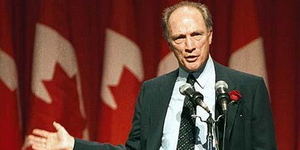 Il semble que l’élément le plus important à retenir de la dernière élection fédérale soit le supposé renouveau de la gauche. En fait, cet élément est un non-événement. Il n'y a pas eu de renouveau de la gauche. On tente ainsi de démontrer que le succès du NPD est d’abord un phénomène québécois enveloppé dans une «énigme» du Québec. On tente aussi de nous faire croire que ces élections signifient un pays divisé et désespérément polarisé entre une droite récalcitrante et une gauche autocrate. Et pourtant, les raisons sont toutes autres : la fatigue des Québécois pour la séparation et l’incapacité pour les libéraux de rallier les Canadiens à travers un message authentique.
Il semble que l’élément le plus important à retenir de la dernière élection fédérale soit le supposé renouveau de la gauche. En fait, cet élément est un non-événement. Il n'y a pas eu de renouveau de la gauche. On tente ainsi de démontrer que le succès du NPD est d’abord un phénomène québécois enveloppé dans une «énigme» du Québec. On tente aussi de nous faire croire que ces élections signifient un pays divisé et désespérément polarisé entre une droite récalcitrante et une gauche autocrate. Et pourtant, les raisons sont toutes autres : la fatigue des Québécois pour la séparation et l’incapacité pour les libéraux de rallier les Canadiens à travers un message authentique.
Election analysis: Post election blues: Splitting hairs on vote splits
Par Johannes Wheeldon le 10 juin 2011
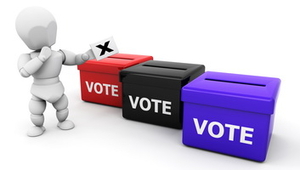 One of the outcomes of the 2011 Federal election has been interest in how Liberal and NDP voters split the progressive vote, and thus paved the way for a conservative majority. Shouldn't it be easy to understand what role vote splitting played in the 2011 election? Well, yes. And no.
One of the outcomes of the 2011 Federal election has been interest in how Liberal and NDP voters split the progressive vote, and thus paved the way for a conservative majority. Shouldn't it be easy to understand what role vote splitting played in the 2011 election? Well, yes. And no.
Election Analysis: Les dépendantistes
Par Éric Duhaime le 10 juin 2011
La déconfiture du Bloc québécois après l'election pose la question de la survie du parti. Le Bloc est-il mort? Avec seulement quatre députés ayant survécu au naufrage, la reconstruction s’annonce périlleuse, voire impossible.
Election analysis: Better voter representation system needed
Par Duff Conacher le 10 juin 2011
 The $2 per-vote annual subsidy for parties is the most democratic part of the federal political finance system, because it is based on the fundamental democratic principle of one-person, one-vote. While it should be changed to make it more democratic it will be very undemocratic to cut it to zero as the Conservatives propose.
The $2 per-vote annual subsidy for parties is the most democratic part of the federal political finance system, because it is based on the fundamental democratic principle of one-person, one-vote. While it should be changed to make it more democratic it will be very undemocratic to cut it to zero as the Conservatives propose.
Election analysis: No more room in between right and left?
Par David-Éric Simard le 10 juin 2011
We have just witnessed several surprising political upheavals that have changed the Canadian political landscape. Is this ephemeral, or the path we are set on for the next generation? Despite the passage of a few weeks to take it all in, it is still hard to believe that we now live under a majority Conservative government. For many people, it’s difficult to clearly see what has changed and where our country is headed. In our immediate environment, Quebec’s political map has been painted NDP orange while most of Canada’s other regions are now Conservative blue. This clear distinction leaves many of us wondering whether there’s still a place for Liberal red and the Bloc’s light blue on the political horizon beyond the next four years.
Theodore Bikel and the soundtrack of our lives
Par Beryl Wajsman le 10 juin 2011
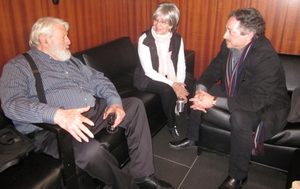 Some things stay with you. More importantly, some people do. They become part of the fabric of who you are. The memory of their piercing glare, their defiant words, their resonant voice and their courageous acts rally your resolve whenever it weakens. It is not even the stirring of memory, for their images never really leave you. Theodore Bikel is all that and more. For in his case there is music, and what music. It is the soundtrack of our lives.
Some things stay with you. More importantly, some people do. They become part of the fabric of who you are. The memory of their piercing glare, their defiant words, their resonant voice and their courageous acts rally your resolve whenever it weakens. It is not even the stirring of memory, for their images never really leave you. Theodore Bikel is all that and more. For in his case there is music, and what music. It is the soundtrack of our lives.
De Tunisie jusqu’en Syrie La révolte de la peur et… le moment de vérité!
Par Alain de Perlycroix le 10 juin 2011
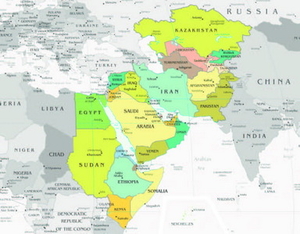 À priori, lorsqu’on voit les peuples arabes se soulever contre leurs dictateurs, on ne peut que s’en réjouir. Toutefois, à bien y penser, l’on se demande si cela permettra pour autant la mise en place d’une démocratie à l’occidentale ou tout simplement l’implantation d’une autre sorte de dictature masquée, quelle soit religieuse ou laïque pro-occidentale.
À priori, lorsqu’on voit les peuples arabes se soulever contre leurs dictateurs, on ne peut que s’en réjouir. Toutefois, à bien y penser, l’on se demande si cela permettra pour autant la mise en place d’une démocratie à l’occidentale ou tout simplement l’implantation d’une autre sorte de dictature masquée, quelle soit religieuse ou laïque pro-occidentale.
Effet domino? Pas vraiment!
Chaos theory for political order in the Arab world
Par Rouba al-Fattal le 10 juin 2011
 As a Board Member of the EuroArab Forum in Brussels and a “specialist” on the Arab world, I am asked daily of what I think is going to happen in the Middle East. Let me be frank, as much as I wish I could predict the future to my own satisfaction, nobody knows what the final outcomes will be. Political analysts and pundits may quench the public thirst for information by providing their sophisticated forecasts, but their chances of getting it right at this early stage are as good as playing the roulette.
As a Board Member of the EuroArab Forum in Brussels and a “specialist” on the Arab world, I am asked daily of what I think is going to happen in the Middle East. Let me be frank, as much as I wish I could predict the future to my own satisfaction, nobody knows what the final outcomes will be. Political analysts and pundits may quench the public thirst for information by providing their sophisticated forecasts, but their chances of getting it right at this early stage are as good as playing the roulette.
Majority economics in a polarized house
Par Robert Presser le 10 juin 2011
Stephen Harper already led the longest-serving minority government in Canadian history before his majority win on May 2nd. After five years of centrist economic management as a necessity for passing budgets as a minority government, Harper now has an opportunity to put his and the Conservative Party’s stamp on the Canadian economy for the coming decade. The question now becomes whether the government will continue to pursue centrist, incremental policies or if it will embrace several big, bold, transformational ideas to leave a lasting effect on the Canadian economy.
A meaner Canada: junk politics and the omnibus crime bill
Par Alex Himelfarb le 10 juin 2011
 Canada’s new Parliament is poised to reshape Canada’s criminal justice system and, in significant ways, Canada itself. Within 100 sitting days of its resumption Parliament will pass an omnibus “tough on criminals” bill that represents the biggest change to our justice system in recent memory. But these changes are coming with disturbingly little controversy or opposition. They are not part of some so-called hidden agenda. This is what most or at least many Canadians voted for and, among those who did not, few seem much worried. Political opposition has been muted. Who wants to be seen as soft on crime, soft on criminals, concerned about inmates?
Canada’s new Parliament is poised to reshape Canada’s criminal justice system and, in significant ways, Canada itself. Within 100 sitting days of its resumption Parliament will pass an omnibus “tough on criminals” bill that represents the biggest change to our justice system in recent memory. But these changes are coming with disturbingly little controversy or opposition. They are not part of some so-called hidden agenda. This is what most or at least many Canadians voted for and, among those who did not, few seem much worried. Political opposition has been muted. Who wants to be seen as soft on crime, soft on criminals, concerned about inmates?
Constitutional challenges that are fair to all Canadians
Par Chris Schafer le 10 juin 2011
In 2007, on behalf of the Canadian Constitution Foundation (CCF), I testified before the House of Commons Standing Committee on Official Languages, in support of the federal government decision to eliminate the Court Challenges Program. The Program provided taxpayer financed assistance for constitutional cases involving language and equality rights. All Canadians, through their tax dollars, paid to advance through the courts the public policy agendas of various special interest groups who received Court Challenges Program funding, whether taxpayers agreed with those agendas or not. This was unfair.
Rights Commission to police: "Change policy on incivilities."
Par Anja Karadeglija le 10 juin 2011
 The Quebec Human Rights Commission has released a report tackling racial profiling in Quebec, but whether it’ll make a difference depends on the political will to implement the recommendations, says Fo Niemi,executive director of the Center for Research-Action on Race Relations.
The Quebec Human Rights Commission has released a report tackling racial profiling in Quebec, but whether it’ll make a difference depends on the political will to implement the recommendations, says Fo Niemi,executive director of the Center for Research-Action on Race Relations.
The report notes that racial profiling is often viewed as aproblem exclusive to Montreal, and Niemi says that’s because of the city’s racial diversity.
JEAN-PIERRE GOYER: Born in Ville St. Laurent, long-time MP for Dollard was architect of prison reform
Par Alan Hustak le 10 juin 2011
As Solicitor General in Pierre Trudeau’s government, Jean-Pierre Goyer was the architect of prison reform in Canada. Concerned about both the cost of keeping a prisoner in jail and the rate of recidivism, Goyer promoted a more humane approach to incarceration. During the 1970’s heintroduced better haircuts and better clothing for inmates, inaugurated new housing arrangements that permitted conjugal visits, and made it easier for prisoners to work and go to school. If society really was to be protected, prison he argued, should offer inmates a “more rehabilitative atmosphere.”
A temple of art and music
Par Alan Hustak le 10 juin 2011
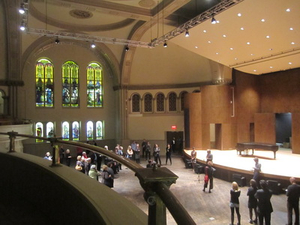 From the natural light that floods the fourth floor Inuit sculpture gallery to the luminous glow of the Tiffany stained glass windows in its concert hall, the Montreal Museum of Fine Arts newest pavilion is as calm and as uplifting as ….. well, a church. Which it once was. The old Erskine American Church, a brownstone Sherbrooke St. landmark since 1894, has been converted into a $40-million temple of art and music known as the Claire and Marc Bourgie Pavillion.
From the natural light that floods the fourth floor Inuit sculpture gallery to the luminous glow of the Tiffany stained glass windows in its concert hall, the Montreal Museum of Fine Arts newest pavilion is as calm and as uplifting as ….. well, a church. Which it once was. The old Erskine American Church, a brownstone Sherbrooke St. landmark since 1894, has been converted into a $40-million temple of art and music known as the Claire and Marc Bourgie Pavillion.
When the medium is part of the message
Par P.A. Sévigny le 10 juin 2011
“It’s a lot of fun,” said Montreal artist Keira Parnell. As the curator of the new Mail-Art exhibition hanging in NDG’s popular Connexions Language School, Parnell said she had a great time putting together the eclectic mix of original postcards that makes up the show. “Once you get involved in the mail-art community, using the mail to send your work is just as important as getting one back.”
“Via Rail/A More Human Way to Travel?”
Par Robert K. Stephen le 10 juin 2011
VIA’s slogan currently reads, “A More Human Way to Travel”. Is this true? I decided to test this a bit further on a recent Toronto to Montreal VIA 1 round trip. A human way to travel means to be treated like a human as opposed to, well let’s say to be innovative, cattle…..you know serve those human needs with comfort, a smile, amenities, food and drink which by the way is the glue that keeps humans talking and interacting with each other wherever they may be!

